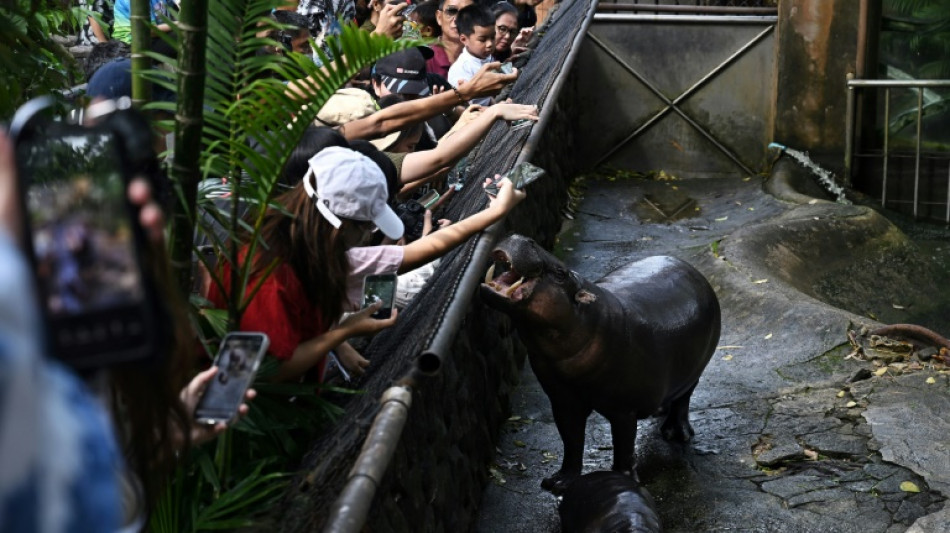Endangered pygmy hippo goes viral from Thai zoo / Photo: Lillian SUWANRUMPHA - AFP
The morning sunlight bouncing off her sleek hide, Moo Deng the pygmy hippo plops to the ground in her enclosure, seemingly unfazed by her rapid rise to social media stardom.
The two-month-old pint-sized creature went viral this week after her handlers posted videos of her on TikTok and Instagram from her home at a zoo in Chon Buri, Thailand.
Her cheeky expressions and playful frolicking racked up millions of views and have lured thousands of visitors wanting to witness her antics.
Moo Deng -- whose name in Thai means "bouncy pork", a popular snack -- is now an unwitting poster child for the endangered pygmy hippo.
The fame has not gone to Moo Deng's head, as she sticks close to her mother, sharing a meal of carrots, bananas, corn and runner beans.
Native to West Africa, the pygmy hippo is threatened by human activities, such as logging, mining and poaching, and there are only 2,000 to 2,500 left in the world, according to the International Union for Conservation of Nature.
Hundreds of visitors queued at the zoo for five minutes in the enclosure.
One group said they woke up at 5:00 am to make the two-hour drive from Bangkok to see the celebrity.
A visitor said she hoped more Thais would come and "post about Moo Deng online so that more people will come to see her".
Moo Deng's caretaker and social media manager Atthapon Nundee, 31, said the rise of short-form videos has turbocharged the pygmi hippo's fame and hopes it will be a boon for biodiversity preservation.
"With more and more images of pygmy hippos online, more people fell in love with them. They are poached in the wild, so with more people caring about them, it might prevent their poaching," he told AFP.
A 2022 study published by the Royal Society of Canada's Academy of Science shows that social media can play both positive and negative roles in wildlife conservation.
Public attention may help raise awareness about endangered wildlife but can increase the risk of species exploitation as more people try to come in contact with them.
Zoo management says the extra earnings from skyrocketing visitor numbers -– almost double over the weekend -- will go towards improving the pygmy hippo enclosure and the zoo's public awareness campaigns.
The zoo also plans to launch a line of Moo Deng merchandise next month.
Pygmy hippos are not native to Thailand, but "zoos have a duty to lead in wildlife conservation outside natural habitats," zoo director Narongwit 'Wit' Chodchoy, 52, told AFP.
"So it's our mission to perpetuate the species for as long as possible."
G.Tara--BD
